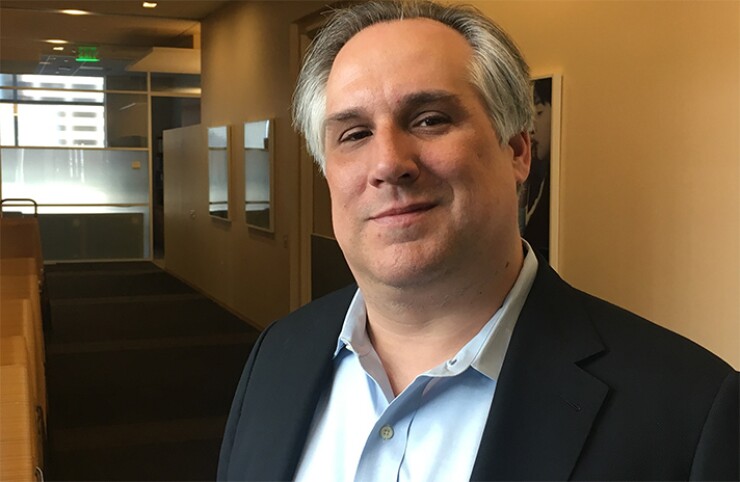The Internal Revenue Service is proposing to require issuers filing Form 8038-CP to do so electronically after the end of the year, potentially smoothing the process for issuers of direct-pay bonds to receive their subsidy payments.
The IRS published
“While the devil is always in the details, my initial reaction is that this is a welcome development,” said Rich Moore, a tax partner in the San Francisco office of Orrick. “The traditional process of sending paper returns to an IRS center for review by an employee at that site faltered badly during the COVID crisis and many payments were significantly delayed. My hope and expectation is that electronic filing will eliminate or minimize these types of issues.”

Issuers of bonds such as Build America Bonds and Qualified Zone Academy Bonds who receive direct subsidy payments from the federal government are required to request the money with the Form 8038-CP.
From 2013 to 2018, the IRS processed an average of $5 billion of direct payment requests, amounts paid on each return varied from less than $1,000 to more than $65 million, according to the proposal filing. During 2019, state and local governments filed approximately 10,000 Forms 8038-CP in paper form. The IRS expects that it will continue to receive Forms 8038-CP from these issuers during the entire term of the bonds, which may be more than 20 years.
The proposed regulations would require filers who are required to file at least 10 returns of any type during the calendar year to file their Forms 8038-CP electronically.
“This requirement would increase the timeliness and accuracy of processing these forms and promote IT modernization efforts,” the IRS said in its filing.
“This is a big step in the right direction as these forms were only available to be filed in paper form previously and this created delays because of the pandemic,” said Carol Lew, a shareholder at Stradling in Newport Beach, California.
The proposed regulations would also provide that the IRS “may grant individual waivers of the e-filing requirement of this section in cases of undue hardship.”
The IRS is seeking comments both written and filed electronically, and may hold a public hearing by teleconference in about two months.





